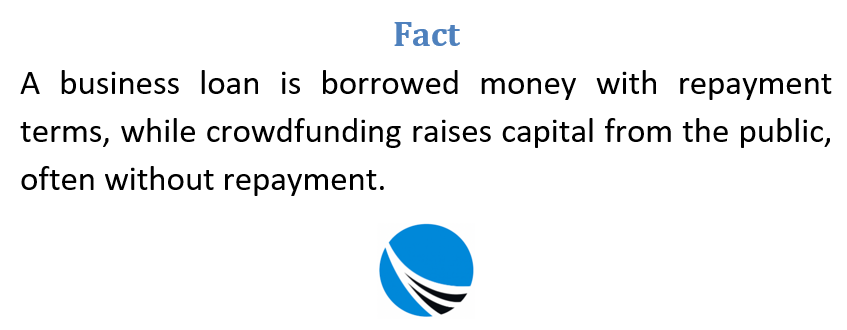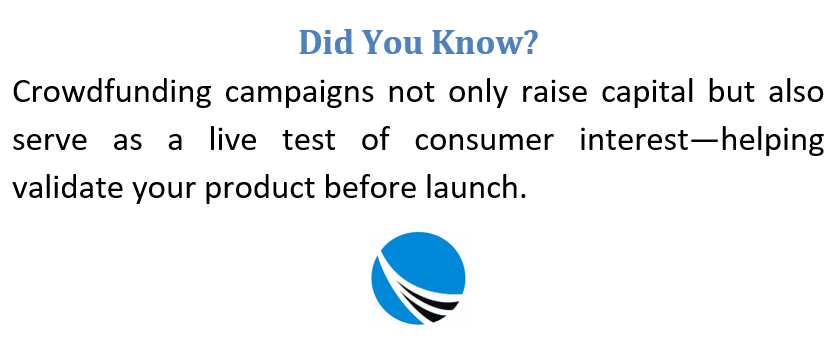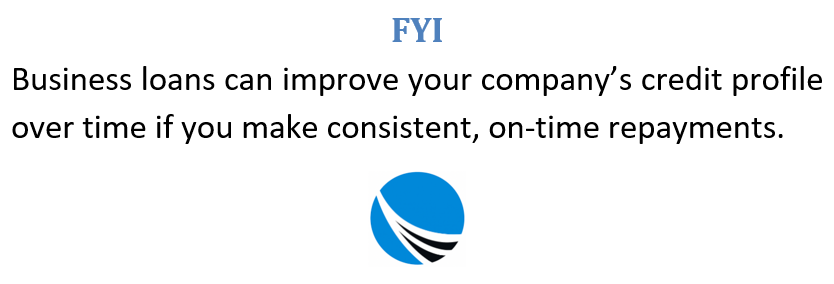Entrepreneurs looking to kickstart or expand their ventures often face the crucial question of how to secure adequate financing. Two of the most commonly pursued funding options are traditional business loans and modern crowdfunding campaigns. Each comes with distinct advantages, challenges, and suitability depending on the nature and maturity of the business. This article breaks down both routes to help you determine which one might serve your needs best.

Understanding Business Loans
A business loan refers to a financial agreement where a lender provides funds to a company, which are to be repaid over time with interest. These funds are often used for a range of business activities—covering payroll, expanding operations, acquiring assets, or managing cash flow disruptions. Loans can be sourced from commercial banks, credit unions, online lending platforms, or government-backed entities.
Varieties of Business Loans
Business owners can choose from several loan types, depending on their specific financial needs:
- Credit Cards for Businesses: Provide revolving credit with flexible repayment options. They’re handy for handling operational costs and short-term expenses.
- Lines of Credit: Allow businesses to withdraw funds as needed up to a set limit. Interest is charged only on the amount used, making this ideal for variable or seasonal expenses.
- Equipment Financing: Tailored for purchasing machinery or tools. The equipment usually serves as collateral, and terms align with its expected useful life.
- Invoice Financing: Enables businesses to borrow against pending invoices. Lenders advance a percentage of the receivables, providing a liquidity boost.
- Factoring: Involves selling unpaid invoices to a third party at a discount in exchange for immediate cash.
- Merchant Cash Advances: Offer upfront funds in exchange for a percentage of future sales. Though fast, they come with high repayment costs.
- Microloans: Small-scale loans—typically below $50,000—often offered by nonprofit lenders or development programs, ideal for early-stage businesses.
- Personal Loans for Business Use: Suitable for entrepreneurs without established business credit, although they carry personal risk if the business fails.
- SBA-Guaranteed Loans: Backed by the U.S. Small Business Administration, these loans are competitive but have rigorous application processes.
- Fixed-Term Loans: Provide a lump sum with regular repayment over a predetermined period, often used for large investments like property or major projects.
Business Loan Process and Considerations
The loan process generally involves submitting a detailed application, which includes financial statements, business plans, credit history, and intended use of funds. Approval depends on factors such as cash flow, creditworthiness, and the borrower’s ability to repay.
Repayment terms vary but typically require monthly payments covering both principal and interest. Missing payments can trigger penalties, damage credit ratings, and risk forfeiture of pledged assets.

Crowdfunding: A Modern Approach to Financing
Crowdfunding taps into collective contributions from individuals, often facilitated through online platforms. Entrepreneurs pitch their business ideas or projects to a broad audience, seeking small amounts of capital from many contributors rather than a single lender.
While it may seem like a new phenomenon, crowdfunding has roots in community-driven funding for creative and publishing projects long before the internet popularized the model.
Main Forms of Crowdfunding
There are several distinct models of crowdfunding, each catering to different goals:
- Donation-Based Campaigns: Donors contribute money without expecting a return, usually to support social causes or community efforts.
- Reward-Based Crowdfunding: Contributors receive non-monetary incentives such as products or services in exchange for their support. This model is widespread on platforms like Kickstarter and Indiegogo.
- Equity Crowdfunding: In exchange for their investment, backers receive shares in the company. It’s a regulated model suited for businesses ready to part with ownership in return for capital.
- Debt Crowdfunding: Also known as peer-to-peer (P2P) lending, this involves borrowing from individuals via an online platform. Lenders expect repayment with interest, similar to traditional loans but often with fewer barriers.
How Crowdfunding Works
Launching a crowdfunding campaign involves several steps. First, the entrepreneur selects a platform and funding model. After setting a funding goal, timeline, and incentives (if applicable), they must craft a compelling pitch, typically including videos, graphics, and detailed explanations of the business idea.
Once live, campaigns rely heavily on marketing—through social media, email, and community outreach—to generate traction. If successful, the funds raised are disbursed after deducting platform fees. However, failing to meet the goal (depending on the platform’s rules) may mean receiving no funds at all.
Comparing Business Loans and Crowdfunding
Choosing between a business loan and crowdfunding depends on a variety of personal, financial, and strategic considerations. Below is a side-by-side breakdown to help weigh your options:
| Aspect | Business Loan | Crowdfunding |
|---|---|---|
| Funding Source | Lenders such as banks or online platforms | Public supporters or private investors via a platform |
| Application Time | Typically lengthy (several weeks) | Campaign setup can be quicker, though success is uncertain |
| Credit Check | Required | Usually not required, especially for reward-based campaigns |
| Repayment | Monthly installments with interest | No repayment for donation/reward models; equity or debt obligations for others |
| Ownership | Retained by founder | May require giving up equity (equity crowdfunding) |
| Guidance and Mentorship | May include advisory support from lenders | Varies; some platforms connect you with experienced investors |
| Risk | Default can harm credit or result in asset loss | Less financial risk, but high reputational and operational pressure |
| Effort Required | Front-loaded in application and approval | Ongoing effort in marketing and managing funder relationships |
Weighing the Pros and Cons
Strengths of Business Loans
- Immediate Access to Funds: Upon approval, businesses receive a fixed amount promptly.
- No Ownership Dilution: Founders maintain full control.
- Credit Building: Successful repayment enhances creditworthiness.
Weaknesses of Business Loans
- Approval Hurdles: Strict eligibility requirements exclude many startups.
- Personal Liability: Collateral and personal guarantees can put private assets at risk.
- Rigid Repayment: Monthly obligations continue regardless of business performance.
Strengths of Crowdfunding
- Market Validation: Success demonstrates customer interest.
- Community Building: Fosters a loyal customer or supporter base from day one.
- Low Financial Risk: No obligation to repay in most models.
Weaknesses of Crowdfunding
- High Effort: Campaign management demands time, marketing skill, and engagement.
- Uncertain Outcomes: Success is not guaranteed.
- Reputational Risk: Failure to deliver on promises can damage trust and future opportunities.
Choosing the Right Path for Your Business
The decision between a loan and crowdfunding hinges on multiple factors:
- Your Stage of Growth: Established businesses with revenue streams and credit history may lean toward loans. Startups without access to credit may prefer crowdfunding.
- Capital Needs: Loans are often better for large sums; crowdfunding suits smaller, project-based needs.
- Time Sensitivity: Loans have longer processing times but provide instant capital once approved. Crowdfunding depends on campaign length and traction.
- Willingness to Share Equity: Founders wary of giving up ownership should avoid equity crowdfunding.
- Marketing Capacity: If your team excels in digital outreach and storytelling, crowdfunding can double as a promotional tool.
Real-Life Example: Choosing Between Speed and Market Engagement
Consider a beverage entrepreneur planning to expand production and launch new flavors. He applies for a business loan and receives funding quickly due to strong financial records, allowing him to scale operations immediately. However, he must manage strict monthly repayments.
He also explores crowdfunding by promoting his expansion plans online. While it takes longer and requires heavy marketing, the campaign attracts customers who pre-order products and promote the brand. This helps validate demand and build customer loyalty.
The situation shows how loans offer fast, structured financing, while crowdfunding supports market engagement and brand awareness, leaving the final choice dependent on business priorities.
Practical Advice from Experts
Edward Piazza, president of a finance consultancy firm, notes, “Crowdfunding is ideal for consumer-facing products with strong visual appeal and a clear narrative. Business loans, meanwhile, work well when growth is predictable and assets are tangible.”
His experience with over 200 small businesses shows a trend: when there’s an established customer base or operational history, lenders are more receptive. Conversely, innovative startups that can energize an online audience might be better suited for crowdfunding.

Alternative Funding Routes to Consider
Beyond loans and crowdfunding, several other financing models may align with your strategy:
- Small Business Grants: Offered by government and private institutions. They’re competitive and time-consuming to secure but do not require repayment.
- Venture Capital: Best for high-growth startups willing to share equity in exchange for large investments and mentorship.
- Angel Investment: Involves wealthy individuals funding businesses they believe in. Typically less formal than venture capital but still equity-based.
- Peer Lending Networks: Online lending platforms connecting borrowers directly with individual lenders, often with more flexible terms than banks.
Final Thoughts
Navigating business finance requires more than identifying who can provide the money—it’s about understanding how each funding method fits your business model, growth plans, and risk tolerance. While traditional loans offer predictability and structured repayment, crowdfunding opens doors to creativity, community engagement, and market testing.
Whether you’re seeking to finance an ambitious expansion or bring a fresh idea to life, consider your operational maturity, credit standing, marketing capabilities, and long-term goals. In doing so, you’ll be able to select a funding strategy that not only brings in capital but also supports the broader vision for your business.
Frequently Asked Questions
Who Should Consider a Business Loan?
Established businesses with steady income and good credit should consider loans for larger funding needs.
When Is Crowdfunding a Better Option?
Crowdfunding suits startups, creative ventures, or businesses with poor credit seeking smaller amounts or market validation.
What Are the Risks of Business Loans?
Defaulting on a loan can harm credit and lead to loss of assets if collateral was pledged.
Are There Credit Requirements for Crowdfunding?
No, most crowdfunding platforms do not assess credit scores, making it accessible to more entrepreneurs.
What Types of Crowdfunding Exist?
Donation-based, reward-based, equity-based, and debt-based crowdfunding each offer different structures and expectations.
How Fast Can I Get Money Through a Loan?
Once approved, business loans are disbursed quickly, but the approval process can take weeks.
How Does Crowdfunding Help Market My Product?
Crowdfunding builds awareness by engaging potential customers during the funding phase, often boosting brand loyalty.
What Fees Are Involved in Crowdfunding?
Platforms usually charge 3% to 5% of funds raised, plus payment processing fees.
Do I Lose Ownership With Crowdfunding?
Only equity-based crowdfunding involves sharing ownership. Donation and reward models do not affect ownership.
Can Crowdfunding Campaigns Fail?
Yes, if you don’t meet your funding goal (on certain platforms) or fail to market effectively, campaigns can fall short.
Are There Alternatives to These Funding Methods?
Yes—grants, venture capital, angel investors, and peer-to-peer lending are other viable financing options.

